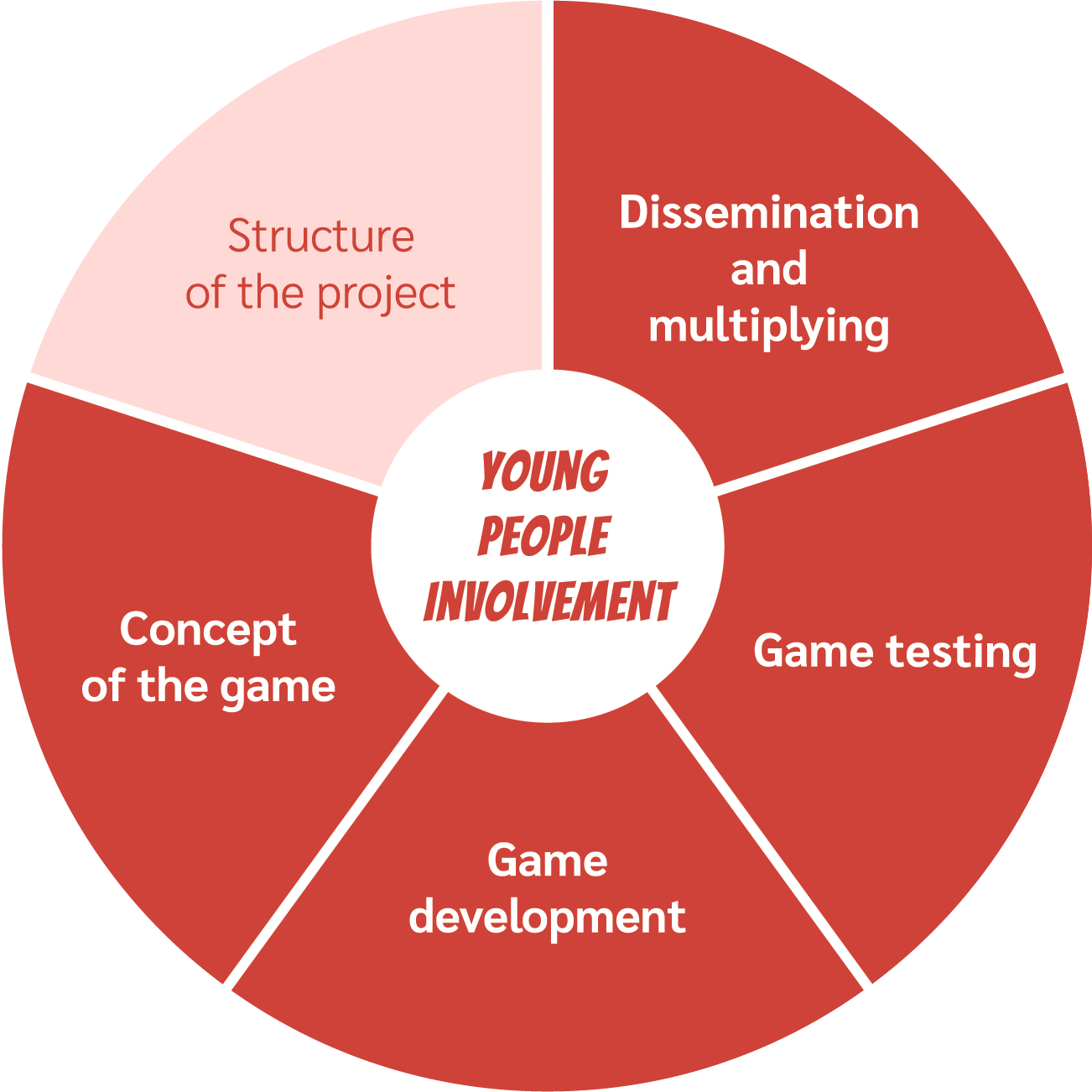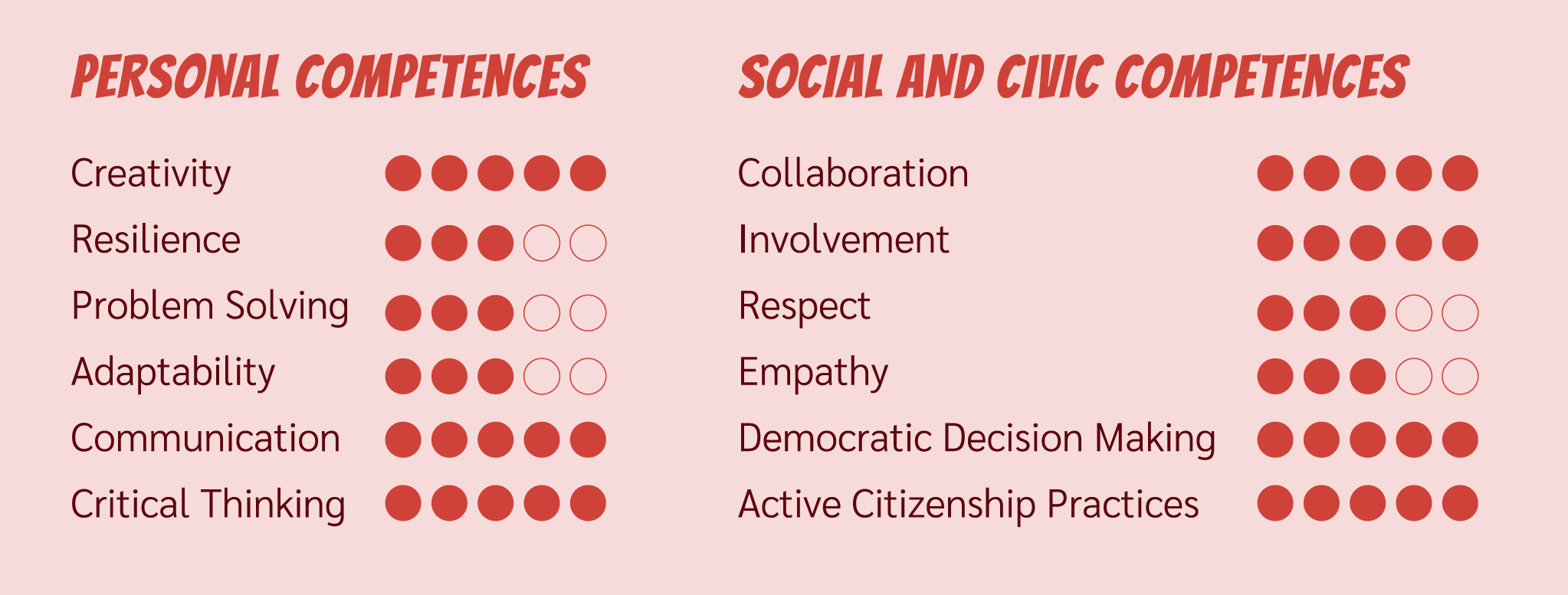8
GameON: Educational game design. Methodological Models
GameON: Educational game design. Methodological Models
Innhold
This playlist will help you familiarise yourself with the methodological models that could be used in the game design process. These methodological models were developed during the GameOn good practice mapping phase we asked 23 facilitators of game design and interviewed extensively 10 of them in the podcast series “Unfolding Game Design” where we got to know more about the different approaches used in the game design journey.
Complete playlist activities to learn about:
- Methodological models that could be used in the game design process.
- Discover the educational games developed according to one of the presented models.
- Reflect upon the models that could be used in your environment with your target group.
Follow the following playlist activities to develop your understanding of methodological models that could be used in the game design process. Start by watching this introductory video:
The international partnership “GameOn” created this playlist to promote inclusion, participation, and critical thinking through game design. Learn more about this partnership here.
Expert partners:
Nexes (ES) – the lead partner, Idealúdica (ES), Universitat de Barcelona (ES), BalkanIdea Novi Sad (SR), Nectarus (LT), Associazione Interculturale NUR (IT).
Co-funded by the Erasmus+ Programme of the European Union
Cover image from Unsplash.
Aktiviteter å fullføre
Fullfør følgende aktiviteter og tjen merker, og spillelistefremgangen din oppdateres
Innhold
Based on our research, the GameOn partners produced seven models to approach game design. The Transformative approach is one of them. Watch the video below to get familiar with this approach.
Usually, the transformative process is developed in non-formal education settings. Young people enrol with a predefined objective to create one or more games. Young people get involved in most game design phases.
The primary goal is to learn about the game design process, develop participants' competencies, and create games that promote social inclusion among other young people.
Following a collaborative approach, young people get involved in the following game design stages:

Transformative game design has unique features.
Process
Usually, young people get involved in collaborative group work for each specific game. They put their knowledge and skills into action to create and validate the game contents.
Participants feel connected to the topic and game purpose. For a group, it is essential to end up having a tested and playable game and use it with other groups.
Such a game design approach lasts from 3 full-day of work to 2 months to develop games, combining theory and practice.
Participants
Transformative game design most often involves non-governmental organisations' members, youth centres' participants, and higher education students.
Participants’ profile is heterogeneous and varies depending on a project’s objectives.
Other actors
Volunteers, youth workers from non-governmental organisations, formal education staff members, and expert trainers may get involved.
Structure
Usually, transformative game design includes training courses or workshops with a predefined programme.
This model offers specific training about the game potential and game-based learning, the game design process, and the general themes that games will focus on.
Guidance
One or more group facilitators and expert trainers support participants. The relationship among the participants is as meaningful as the resulting game.
Competences
These are some personal, social and civic competences young people can develop in Collaborative game design projects.

Examples
This activity is part of the wider educational effort of the international partnership “GameOn” to promote inclusion, participation, and critical thinking through game design. Learn more about this partnership here.
Expert partners:
Nexes (ES) – the lead partner, Idealúdica (ES), Universitat de Barcelona (ES), BalkanIdea Novi Sad (SR), Nectarus (LT), Associazione Interculturale NUR (IT).
Co-funded by the Erasmus+ Programme of the European Union
Cover image from Unsplash.
Materiale
Last ned aktivitetsmerke
GameON: Educational game design. Transformative model Få dette merket
Owners of this badge learned more about the Transformative game design model and reflected upon the existing game design practice and their own experience.
The evidence of completing this activity is included in the badge and was reviewed and verified by the organisers.
This activity is part of the wider educational effort of the international partnership “GameOn” to promote inclusion, participation, and critical thinking through game design. Learn more about this partnership here.
Oppgaver
Oppgavenr.1
Bevis bekreftet av: selvgodkjenning
Share your thoughts on the following questions to earn the activity badge:
What elements of the Transformative model did you discover?
Could this game design model be used in your educational work with your target group?
Aktiviteter: 7
Startet: 43
Fullført spilleliste: 1
Del:
Arrangører
GameOn - Game Design for Inclusion
Badgecraft driver denne plattformen og utvikler den sammen med ledende utdanningsorganisasjoner. EUs Erasmus Plus-program har delfinansiert utviklingen av den første versjonen av denne plattformen. Kontakt support@badgecraft.eu.
Plattform
Endre til annet språk:
